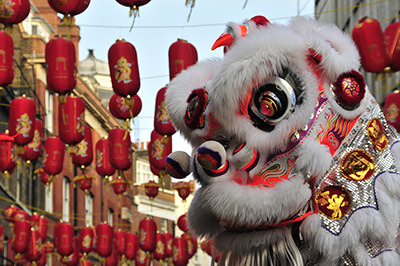 If you’re planning to do business in China this February, it is important to be aware of the customs of Chinese Lunar New Year, also known as the Spring Festival. Those unfamiliar with the customs might find they have a difficult time scheduling meetings, finalizing deals or getting much work done.
If you’re planning to do business in China this February, it is important to be aware of the customs of Chinese Lunar New Year, also known as the Spring Festival. Those unfamiliar with the customs might find they have a difficult time scheduling meetings, finalizing deals or getting much work done.
In 2016, the festival starts the day before the New Year on February 7th and spreads across 15 days, peaking on February 8th, as China welcomes The Year of the Monkey. The festival begins with Chunyun, which is the biggest annual human migration. Over 1 billion Chinese leave densely populated metropolitan areas to return home to their villages. The festivities conclude with Lantern Festival, the 15th day of the new year.
These traditions will be celebrated across the entire country of China by approximately 1/6 of the world’s population, making it the largest event on the globe. The holiday originated in China and is celebrated in Asian countries and economies with significant Chinese populations such as Hong Kong, Malaysia, Singapore, and Taiwan. The largest Chinese New Year celebration outside China occurs in London, and begins on Valentine’s Day, February 14, 2016.
Traditionally, many taboos are associated with the Chinese New Year Festival, but in recent years some of them have been ignored to a certain extent, especially among the modern urban populations in larger cities, and the younger generation. However, many people still take these superstitions seriously. Unless you know your audience well, it is best to be aware of these top 15 taboos as you work and negotiate in Asia in February 2016.
1. Don’t Say Anyone’s Name to Wake Them
On New Year’s Day morning, don’t use a person’s name to wake them or encourage them to get up—otherwise you will have to urge them to do tasks and projects all year.
2. Don’t Awaken A Sleeping Person with “Happy New Year!”
On New Year’s Day, don’t awaken sleeping individuals with New Year greetings. Wait until they rise or they will be sick in bed for 2016.
3. Avoid Washing Hair
In Mandarin (Chinese language) hair (发) has the same pronunciation and is the same character, as fa in facai (发财), which means ‘to become wealthy’. So it is best to wait until after New Year’s to avoid ‘washing one’s fortune away.’
4. Avoid Congee, Meat, or Fish for Breakfast
You don’t want to start the year “poor,” by eating Chinese porridge, as this is a bad omen. So eat cooked rice for the first meal of the year to invite prosperity. Meat should not be eaten at this breakfast out of respect for the Buddhist gods, who are believed to be against the killing of animals.
5. Don’t Wear Damaged Clothing
Buy new clothing and avoid clothes with tears, rips, and damage. Children are especially susceptible to this bad luck in the first lunar month.
6. Avoid Doing Laundry on 1st and 2nd Day
Water should be conserved on these special days, which are celebrated as the birthday of Shuishen (水神, the Water God).
7. Avoid Using a Knife, Scissors, or Sharp Blade
It is said that if you use a knife or scissors on the first day of the New Year, quarrels or disputes are inevitable all year long.
8. Avoid Moving the Financial Needle
Avoid financial and budgetary discussions on New Year’s Day. The saying goes, “If you move the needle on New Year’s Day, watch out, you may prick the dragon which will make you grow a stye.” This is a play on words, because the character for stye and needle sound the same. “Moving the needle” refers to changing or making progress.
9. Avoid Chopping Wood
The word for firewood in Chinese is “chai,” which sounds a lot like the word for wealth, “cai.” Thus, on New Year’s Day, one should avoid using an axe to split firewood, because you might be chopping your wealth.
10. Avoid Borrowing Cash
Avoid starting the New Year with someone else’s money, or legend says you’ll need loans all year. If you start the year lending money, you will suffer loss all year. According to tradition, one should pay all debts by New Year’s Eve.
11. Don’t Nap During New Year Celebrations
Lore says one should avoid napping on New Year’s Day or you will be lazy all year; it is rude because you should be receiving many guests.
12. Do Not Sweep or Take Out Garbage
You shouldn’t sweep or take out the garbage on New Year’s Day because you will sweep or remove prosperity, wealth, and good fortune for 2016.
13. Theft & Pick Pockets
Avoid pickpockets and people taking objects, including money, from your pocket during the Spring Festival, or all of your wealth will be stolen in the coming year.
14. Avoid Debt Collection
During the Chinese New Year, it is considered bad luck to be involved in collecting debts.
15. A Married Woman May Not Leave Her Home or Visit Family
On New Year’s Day, a woman should not leave her home or she will risk bad fortune for the coming year. Instead, as a wife, she should entertain visitors in her home. She must avoid visits on New Year’s Day, as this brings bad luck to the parents, causing economic hardship, and poverty.

Great, thanks for sharing this blog.Really looking forward to read more.